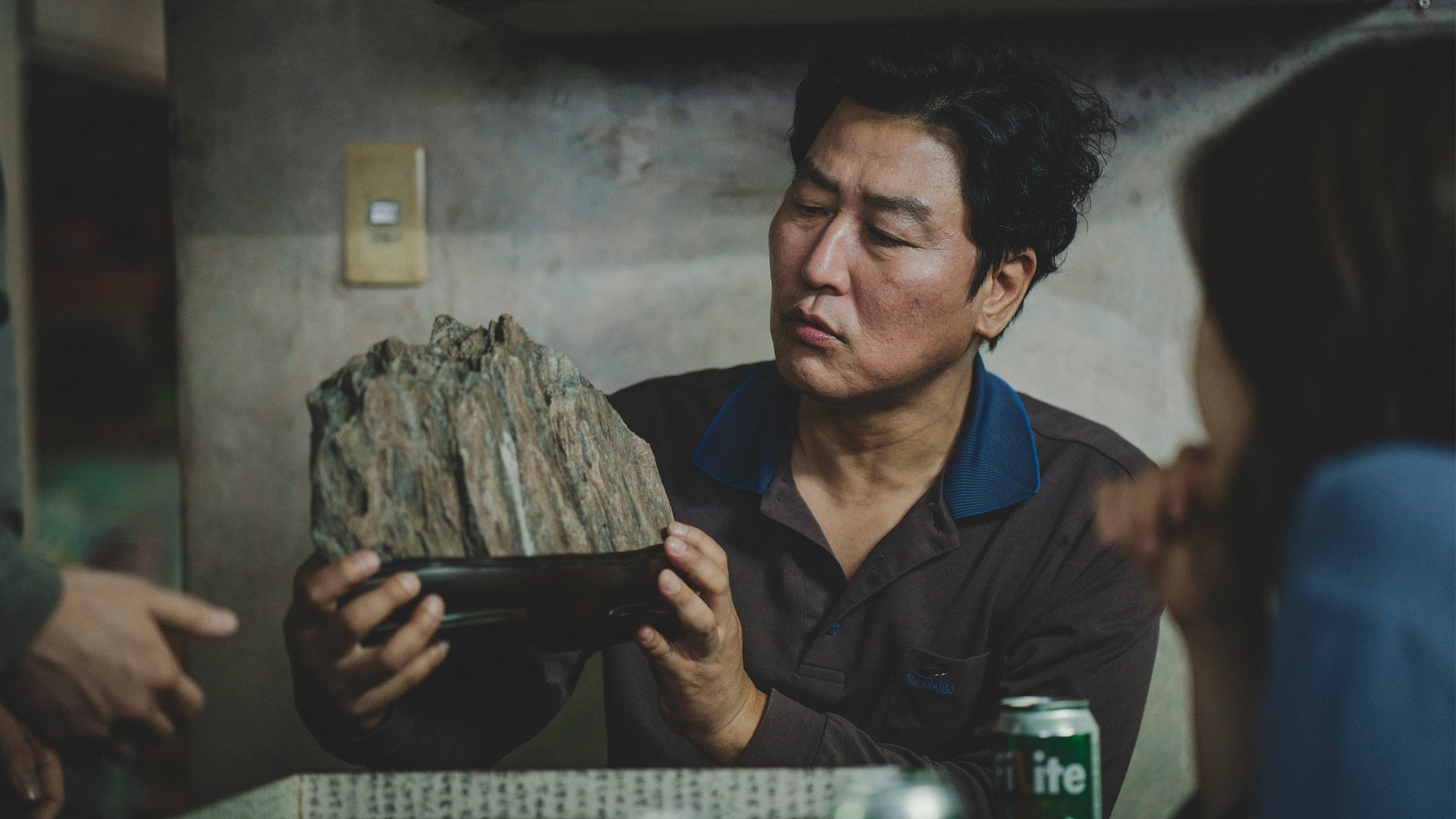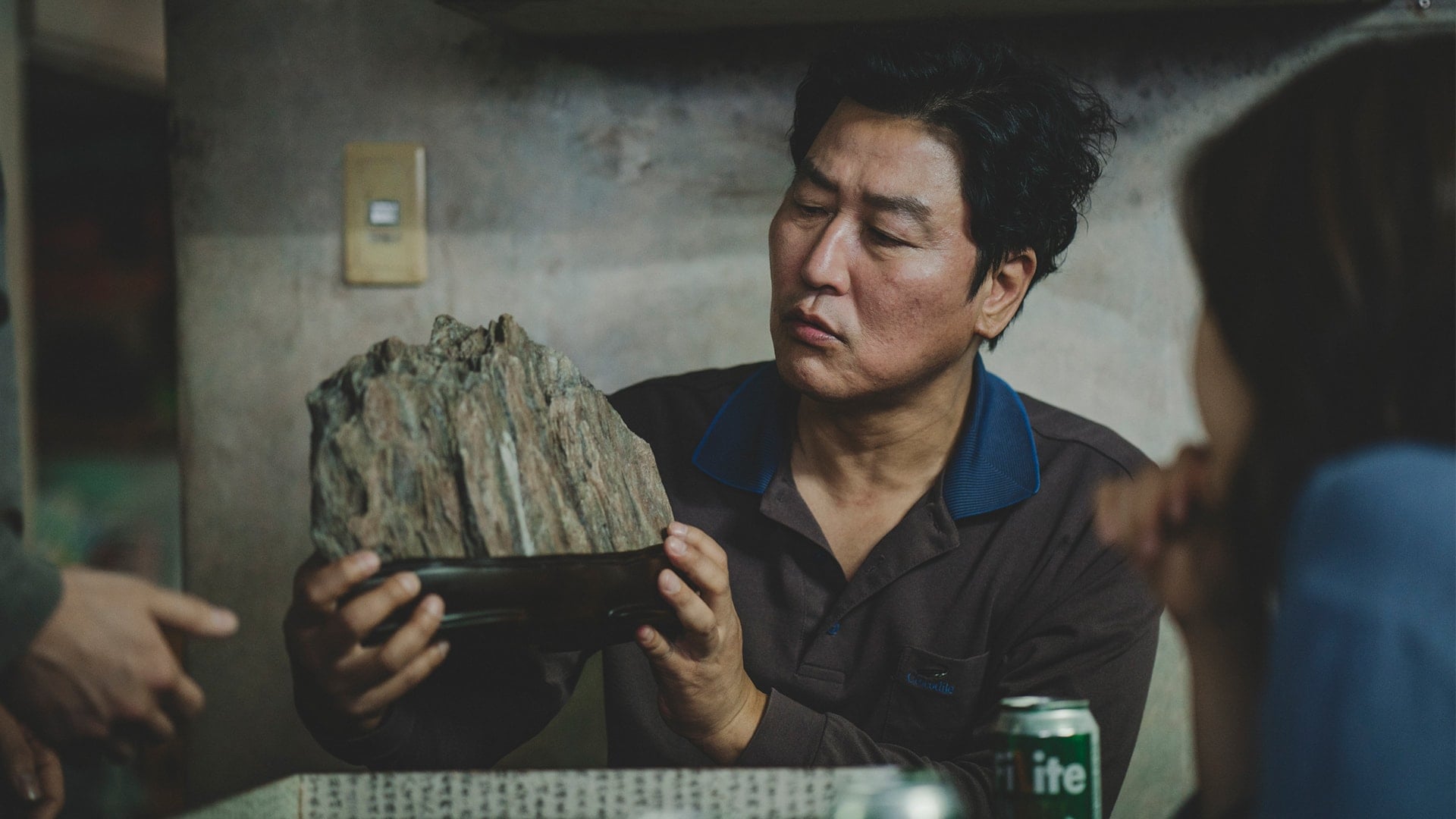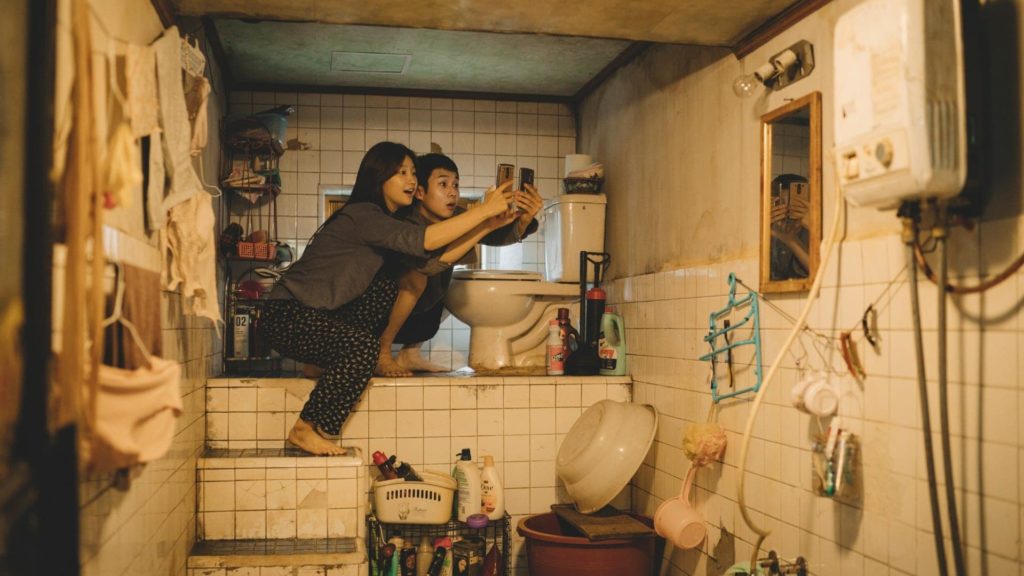
Multi-award-winning Parasite deserves a watch with little-to-no expectations; maybe the fact that it’s about a parasitic relationship is all that’s required. But is there something about the film that makes us want to prevent it from being spoiled? ‘Spoiling’ is, after all, one of the themes that Bong Joon-ho distils so brilliantly in his style.
No one reading a review of a Western is pissed off to find out there’s a gunfight at the end. Parasite, on the other hand, jumps so deftly from genre to genre — like a flea, from host to host — that any criticism which latches onto it risks sucking its power. Many of its reviewers give spoiler alerts or say they won’t reveal too much. Yet Parasite is a film about despoliation, the ‘spoilers’ and the spoiled. Could there be something beyond its plot that solicits our secrecy?
Without giving too much away, then. Two families. Not at all alike in dignity. The Kim family are destitute, earning a meagre income from folding pizza boxes. Then the son Ki-Woo scams his way into a job teaching English to the daughter of the Park family, who live in a Modernist McMansion with a suntrap manicured lawn.
While at his job interview, Ki-Woo seizes the opportunity to get his sister involved. Ki-Jung poses as an art therapist for the Park’s antic, arrow-firing little boy, whose mother believes he is a prodigy. With the suspense of a con artist film and the planning montages of a heist thriller, the entire Kim family soon insinuates itself into that of the Park’s.

The Kims are despoiled, ground down by a lack of career prospects, and smelling damp. They are Parasite's ‘spoilers’ — robbers, plunderers, out for all they can get. The Park family, in contrast, are spoiled, living in such glossy luxury they fail to notice it happening beneath their noses.
The film opens in a dank, subterranean apartment. Ki-Woo and Ki-Jung are trying to piggyback some free Wi-Fi. Eventually, they strike gold. By crouching next to the toilet — which sits on a raised alter in the long, narrow bathroom — Ki-Woo connects to a new cafe’s network. Ki-Jung squeezes in next to him. Their heads touch the ceiling.

Later, as the family assemble their pizza boxes, a fumigation truck passes and gas spills towards their window. The father, Ki-Tek, spots an opportunity — ‘free fumigation!’ They leave the window cracked and are soon sputtering in a toxic cloud.
Does describing these two short opening scenes, as I have done, lessen their impact upon viewing? It is far better to discover how Parasite's themes are precipitated in its visual wit, plot swerves, and tiny mood shifts. Leeching Wi-Fi, the Kims’ thriftiness seems funny and reasonable, making the viewer complicit, primed for escalation; a minute later, with the fumigation, their scrimping is absurd and suicidal. The tone slips from the theatrical farce of the two siblings crouching next to the toilet to the cinematic spectacle of the gas rolling in like a dark prophecy.
Is it giving too much away if it’s all there in the first shot? The use of space as a metaphor: underground for the underclass, who are vulnerable to societal and environmental hazards, while up high are the likes of the Parks (the people in the middle at least enjoy decent Wi-Fi). Seemingly irrelevant details, like the quirky positioning of the toilet, played for laughs here, will be paid off later in a scene of abject despoilment. Shit runs downhill.

While this might make the film sound ornate, its seductive simplicity makes the viewer want to keep Parasite underground and protect its secrets. Subtle cues. Lighting: warmth, softness and sunlight for the Parks; rationed and artificial light for the Kims. Editing: varying the frequency of cuts and pans pulls us into a rhythm.
The script gives the illusion of simplicity too. On-the-nose, but it knows it, in lines such as, ‘Money is like an iron: it smooths out all the wrinkles.’ Or when the Kims are given a precious viewing stone, supposed to bring luck and money. ‘How perfect for us,’ Ki-Woo says. ‘Metaphorical.’ Relax. Leave the interpretation up to us, Ki-Woo seems to say. We feel so comfortable on the proverbial rug that it’s all the more astounding when it’s whipped out from under us.
In 1960, Alfred Hitchcock impressed audiences with Psycho, ‘Please don’t give away the ending, it’s the only one we have’. But the Spoiler Alert, as we know it, is a product of the internet and its cultivated netiquette. Though Parasite has sucked the blood of a whole catalogue of genres, from black comedy to sci-fi, to label it as such detracts from the simple pleasure of their co-mingling.
As we progress into a streaming culture, it remains to be seen how pausing, binging, rewinding, and re-watching will change our relationship with spoilers. You’re sure to want to do all those things with Parasite, plunder all its beauty and many surprises. But make sure your first viewing is good. It’s the only one you have.



